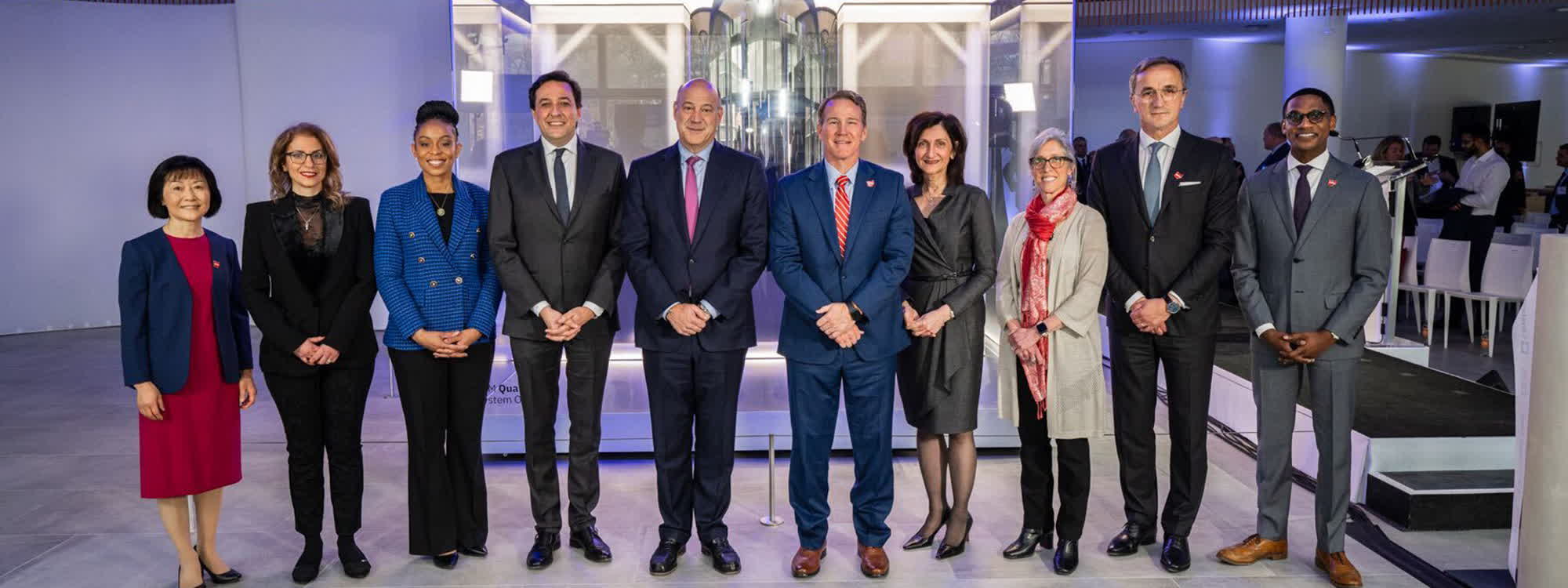What just happened? Cleveland Clinic and IBM recently unveiled the first private sector, onsite-managed quantum computer in the United States. And while quantum computing capabilities are still an unknown, Big Blue is putting some of its HPC gear to work in the new research partnership.
The supposedly revolutionary capabilities of its Watson supercomputer never became real, but IBM is still working to try and advance computer technology for healthcare research. The company is now working with Cleveland Clinic, the Ohio-based nonprofit academic medical center that integrates clinical and hospital care with research and education, to put the theoretical promises of quantum computing to test through the Quantum System One project.
Quantum System One is a pivotal milestone in the ongoing Cleveland Clinic-IBM partnership, Cleveland Clinic CEO Tom Mihaljevic said. The main idea is to "explore new ways" to apply the power of quantum computing to healthcare and medical research. Quantum technology holds a "tremendous promise" for revolutionizing healthcare, Mihaljevic said, as it could provide unprecedented acceleration in discovering new cares, cures and solutions (meaning drugs) for patients.
IBM's Quantum System One super-system will combine quantum computing with other technologies, including artificial intelligence and high-performance computing capabilities (HPC), in a hybrid cloud configuration. In Mihaljevic's words, the main target of the new managed system is to tackle "historic scientific bottlenecks" and potentially find new treatments for the most complex and troublesome diseases of today's world, such as cancer, Alzheimer's and diabetes.

Before introducing Quantum System One, the IBM and Cleveland Clinic "Discovery Accelerator" partnership had already generated multiple projects designed to exploit quantum computing, AI and cloud-based HPC services to advance healthcare research.
These projects include the development of "quantum computing pipelines" to screen and optimize drugs targeted to specific proteins; the improvement of a "quantum-enhanced prediction model" for cardiovascular risk following non-cardiac surgery; using artificial intelligence to search genome sequencing findings and large drug-target databases to find "effective, existing drugs" capable of helping patients with Alzheimer's and other diseases.
Thanks to Quantum System One, IBM CEO Arvind Krishna said, the world-class researchers at Cleveland Clinic can now explore and "uncover new scientific advancements in biomedical research." The Discovery Accelerator project also serves as the technology foundation for Cleveland Clinic's Global Center for Pathogen & Human Health Research, which is a $500 million investment for "studying, preparing and protecting" against emerging pathogens and virus-related diseases.
